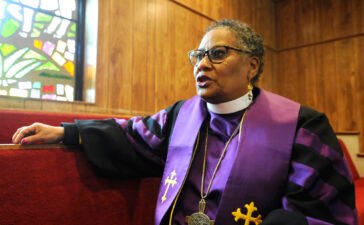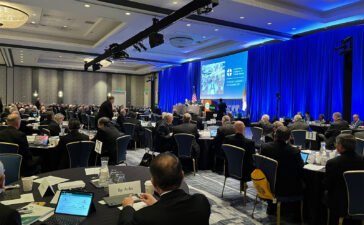(RNS) — Physicians and members of the clergy approach healing in different ways. Physicians treat bodies, which means taking vital signs, making diagnoses based on empirical evidence and prescribing courses of treatment with an expectation of immediate results. Members of the clergy tend to souls, which means providing pastoral care, teaching the foundations of the faith and believing in things that are, by definition, unprovable and immeasurable. And yet, when America’s mental health crisis reached a certain tipping point, we doctors realized it was time to break down the barriers that traditionally separated hospitals from houses of worship and train members of the clergy to offer what might be called emotional, psychological and spiritual first aid.
To understand why more and more health systems are pairing with religious organizations, consider that 169 million Americans, according to the Bureau of Health Workforce, are living in areas with an acute shortage of mental health professionals. That’s more than half of the population, and the number, alas, keeps growing. Adding to the challenge is the cost factor: Many mental health professionals don’t accept any insurance and charge considerable sums upfront for their services.
These are some of the reasons we, at Northwell Health, decided to do something we’ve never done before. We reached out to members of the clergy, asked for their help and offered to help in return.
First, we formed a Clergy Advisory Council, consisting of 12 influential interfaith leaders, to provide us with guidance and advice. As New York’s largest health system, we serve people who come from a dazzling array of faith traditions, ethnicities and backgrounds, and we wanted to make sure we are attuned to each and every community’s challenges and needs. “Mental health” isn’t some abstraction and can’t be treated with set solutions — context matters. To deliver effective mental health care, you have to really know what plagues particular individuals and communities, and our advisory council members help guide us in the right direction.
But to address a crisis of this magnitude, we knew we needed more than mere guidance and advice. Two years ago, we launched faith leader groups, an initiative designed to provide members of the clergy with a three-year Mental Health First Aid Certification, or MHFA, a national program designed to provide skills to identify and respond to signs of mental illness and substance abuse.
The first step in this training was to offer the clergy members themselves the tools — and the permission — they needed to practice self-care. During COVID-19, for example, we saw so many dedicated priests and pastors, rabbis and imams and faith leaders of all traditions spending long hours checking in on those in distress, cheering up the lonely and comforting those who were scared. This work took a toll, and yet few of those overtaxed healers knew how to pause and recharge their emotional and physical batteries.

(Photo by Tim Mossholder/Unsplash/Creative Commons)
Having offered these caretakers tools to take care of themselves, we trained them on the basic yet essential steps for delivering effective and immediate care: how to assess the risk for suicide or harm, how to listen nonjudgmentally, how to give reassurance and information, how to encourage appropriate professional help and how to advocate for self-help and other successful support strategies.
We’re optimistic about the future of this program — and not only because it has already graduated hundreds of clergy members who have since formed their own interfaith support community. We now have ample evidence that this sort of peer counseling is immensely effective. One 2021 meta-analysis of 44 trials found that interventions offered by nonspecialists, including teachers and clergy members, were overall more effective in treating and even preventing symptoms of anxiety and depression.
This helps explain why physicians and other health care professionals are increasingly viewing spirituality as one of the all-important social determinants of health, the factors that play an outsized role in determining a person’s well-being. Faith-based organizations, after all, aren’t just effective in delivering services and education that help communities better meet public health challenges; they also promote a sense of purpose and community that enhances overall mental health.
Let us hope that more health care professionals and faith leaders alike join in on the challenge and invest time and resources to make sure we can help our struggling friends and relatives heal.
(Dr. Debbie Salas-Lopez is Northwell Health’s senior vice president of community wellness and population health. The views expressed in this commentary do not necessarily reflect those of Religion News Service.)





